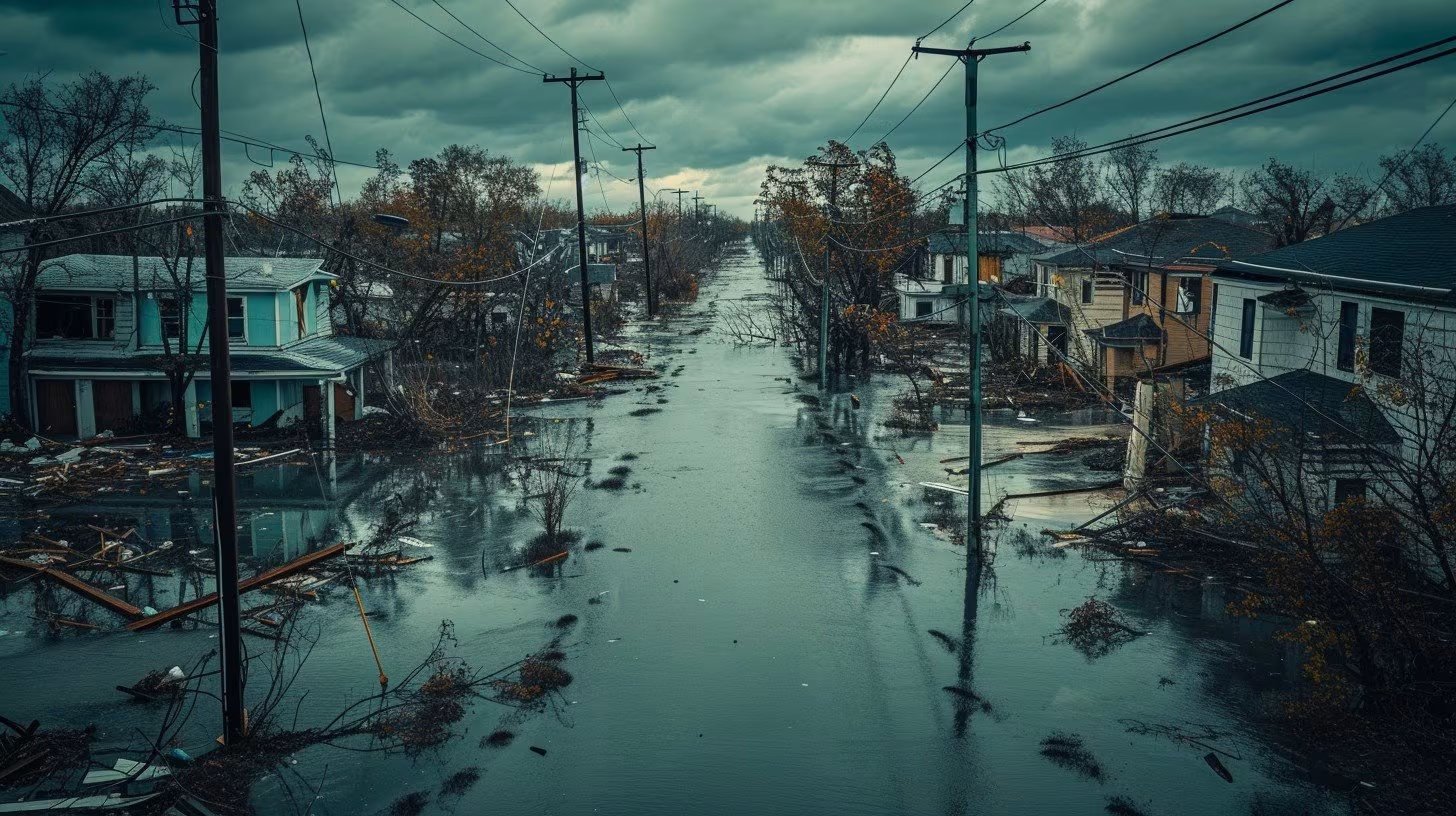

By Asmita - Jul 18, 2025
South Korea faces dire situation with heavy rainfall, leading to evacuations, four fatalities, and highest level weather alert. Experts emphasize importance of proactive climate resilience measures as aftermath poses economic challenges and underscores need for enhanced disaster preparedness.

Flooded street via StockCake
LATEST
South Korea is facing a dire situation as heavy rains have led to the evacuation of 1,300 people and claimed the lives of four individuals. The country is grappling with record rainfall, prompting authorities to escalate the weather-related disaster alert to its highest level.
The heavy downpour has caused significant disruptions across the region, with infrastructure damage and threats of landslides adding to the challenges. In response to the crisis, emergency services have been working tirelessly to rescue those stranded by the floods and provide support to affected communities.
The relentless rain in South Korea underscores the increasing frequency and intensity of extreme weather events globally, raising concerns about climate change and the need for enhanced disaster preparedness measures. Experts emphasize the importance of proactive measures to mitigate the impact of such disasters, urging governments to prioritize climate resilience and adaptation strategies.
The aftermath of the heavy rains is likely to pose economic challenges for South Korea, including costs related to recovery and rebuilding efforts. As climate-related risks continue to escalate, it is imperative for countries to invest in sustainable infrastructure and disaster response capabilities to safeguard lives and mitigate financial losses in the face of extreme weather events.